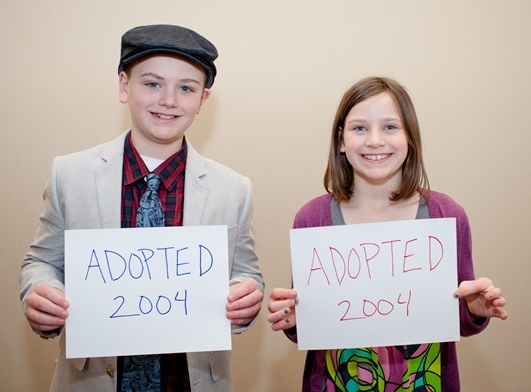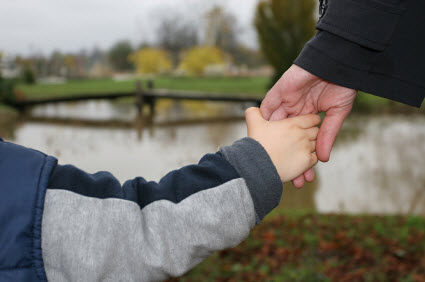 I just finished up a six-week online storytelling course. I had been feeling a little jaded about how I communicate about philanthropy and was thinking my technique could use some revitalizing.
I just finished up a six-week online storytelling course. I had been feeling a little jaded about how I communicate about philanthropy and was thinking my technique could use some revitalizing.
In this course I had to craft a brief personal story that frames the key message for my social change passion. Through this class I was able to identify one of my passions: helping people realize how easy it is to seamlessly incorporate philanthropy into their lives.
Each week my group and I got tips about two main things related to storytelling:
1) Different ways of presenting
2) Being an effective leader by being present, reaching out to others, being expressive and being authentic in order to make a connection with an audience.
Right around the time my class ended, I was invited to attend the annual fundraising luncheon for Amara, a Seattle-based organization that works to create “forever homes” for foster children. I was blown away at how they brilliantly inspired 660 attendees to donate almost half a million dollars using the power of storytelling to highlight the organization’s social change passion.
Amara used these three strategies:
Having a super-organized agenda, in which each piece had an impact
The luncheon started promptly at noon and ended exactly one hour later. During that hour, six strong ingredients together created an extremely entertaining event.
• The emcee was a well-known television news anchorwoman
• The welcome was done by a former foster child
• Three powerful speakers each told their personal story
• A video of a family success story along with poignant photographs flashed on the screen
• A request for support was made (which gave a nice, brief break from the program and allowed table members to chat with one another)
• An award was presented to an older couple who had fostered dozens of children
Making your social change passion immediately known
“Your children, my children, our children — we all take responsibility in our community,” began emcee Jean Enerson, the King 5 anchorwoman. And with these words, she went right to the heart of Amara’s mission. When she introduced former foster child Daniel Bryson-Beane, 13, who welcomed the audience to the event, I was immediately captivated by what he had to say.
“I was homeless, and Amara found me. And now my life is awesome,” said Daniel.
A stillness fell over the whole room, and people shifted and turned to pay attention. He asked all the adoptees to stand up, then all the families who fostered and adopted children. He pointed to his “rock star Momma!” I was deeply moved by this act of making visible the people in the Amara community who are impacted and who have an impact on children.
Have engaging, authentic speakers
These three speakers carried the show with their presence, authenticity and ability to reach out to the audience.
1. John Morse, CEO of Amara
 Morse used the story of The Wizard of Oz as a backdrop to segue into his key message: how important it is for children to have a home. He and his 11 siblings would cluster around the family’s tiny TV screen year after year.
Morse used the story of The Wizard of Oz as a backdrop to segue into his key message: how important it is for children to have a home. He and his 11 siblings would cluster around the family’s tiny TV screen year after year.
Morse was always moved by the final scene in the movie:
Dorothy has just woken up in bed to find all her family and friends surrounding her.
To him, this meant that even though Dorothy did not live with her biological parents, she was loved.
And his conclusion: “These children do not have a Scarecrow, a Tin Man or a Cowardly Lion to help them return safely home or find a new one. These children do have huge hearts, good brains, and courage. They just need a childhood to discover and develop them. That is where we come in — all of us. This is not someone else’s responsibility. It is ours.”
2. Sheila Capestany, executive director of Open Arms Perinatal Services
Keynote speaker Capestany had strong leadership presence: her authenticity in speaking of her loneliness as a foster child allowed her to connect with her audience.
Throughout her speech, images of her childhood flashed on the screen.
Capestany shared, "It was in my last foster home, when I was about 5, that I began to really listen to the adult conversations around me. From listening I understood that my birth mom would never be able to be my mom. By listening, I learned that they were looking for a new home for me and my sister. I heard, for the first time in my life, the term 'hard to place. And I understood that somehow this term applied to me and my sister.
"In the fall of 1972, Renee [Capestany’s sister] and I found out that we were getting our own family. And, I remember saying 'mom' for the first time. Feeling anxious and excited and embarrassed — and, finally — like I could rely on that name.”
Adopted through Amara, Capestany found herself many years later working once again with Amara to adopt her daughter Jasmin, now 13, from foster care. On Jasmin’s first night, Capestany assured her:
"You can call me anything you want, whenever you want, whatever makes you comfortable. And she looked at me and said, 'How about Momma?'"
3. Adam Cornell, deputy prosecuting attorney of Snohomish County
Cornell, the last speaker, was a foster child himself, and he shared his story very briefly as a backdrop for the award he presented.
“Stella May [Carmichael, a foster parent for whom the award is named] told me I am not a victim and that I could do anything I want with my life. She never let me feel sorry for myself,” said Cornell. Carmichael taught him that he could be brave.
"With this award, we honor the memory of Stella and the achievement of every foster parent who helps children be brave," he said, as he introduced Karen and Ted Madison, who have fostered 96 children over a span of almost 20 years.
Cornell concluded his piece with two insightful questions that helped the audience understand the motivations behind this couple’s desire to foster children:
When you were asked to be a temporary foster family for that very first baby, why did you say yes?
" ... we were so happy to be able to love a foster baby just the way someone loved our kids before we adopted them." — Karen Madison
We believe that no child should be left behind. Every child should have a happy home." —Ted Madison
Was it hard for you all to care for so many children and then say goodbye?
"No, just the opposite! We celebrated their 'Happy Day' when they got to join their family. Just like we celebrate the adoption of our own children with 'Gotcha Day.'" — Karen Madison









